Israel election: Netanyahu's Likud storms to victory
- Published
Jonny Dymond reports on how election night unfolded in Tel Aviv
Prime Minister Benjamin Netanyahu's right-wing Likud Party has won a surprise victory in Israel's election.
Exit polls had forecast a dead heat but with almost all votes counted, results give Likud a clear lead over its main rival, the centre-left Zionist Union.
The outcome gives Mr Netanyahu a strong chance of forming a right-wing coalition government.
It puts the incumbent on course to clinch a fourth term and become Israel's longest-serving prime minister.
The latest tally gives Likud 30 seats in the 120-seat parliament, the Knesset, with Zionist Union on 24 seats.
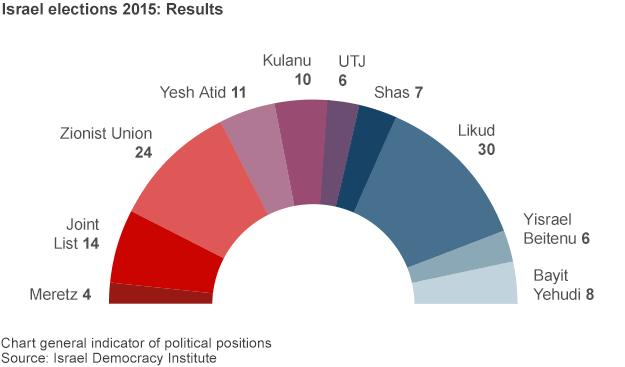
In a speech to jubilant supporters in Tel Aviv after Tuesday's polls closed, Mr Netanyahu described the vote as a "great victory" for Likud, which had trailed the Zionist Union in opinion polls in the run-up to the election.
Mr Netanyahu "plans to immediately begin forming a government in order to complete the task within two to three weeks," a statement from Likud said.
It said he had already spoken to parties he saw as possible coalition partners, including right-wing and ultra-Orthodox parties and centrist Kulanu, which won 10 seats.

Likud supporters celebrated after the exit polls were announced
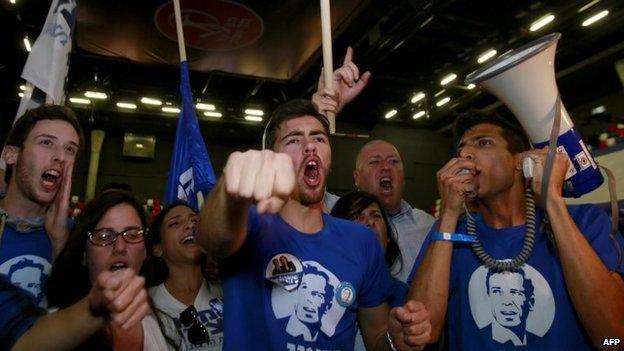
The Zionist Union had been ahead in the opinion polls
Zionist Union leader Yitzhak Herzog called Mr Netanyahu early on Wednesday to congratulate him on the result and wished him "good luck".
"Nothing has changed, we will keep fighting for a just society," he was quoted as saying by Israeli newspaper Haaretz.
European Union foreign policy chief Federica Mogherini congratulated Mr Netanyahu, saying the EU was "committed to working with the incoming Israeli government" and to re-launch the Israel-Palestinian peace process.
Peace talks have been on hold since a last round collapsed a year ago.

Analysis: BBC's Middle East editor Jeremy Bowen, Jerusalem
In the end Israeli opinion polls told the wrong story, yet again. Benjamin Netanyahu scored a much bigger victory than the exit polls had suggested.
In the last few days of the campaign he demonstrated yet again why he is such a formidable politician. The prime minister narrowed the gap with Mr Herzog's Zionist Union, and then overhauled it, by turning sharply towards the ultra-nationalist Israeli right.
He issued a series of grim warnings about the consequences for Israel if he lost - Arabs with Israeli citizenship were voting, so his people needed to turn out.
He also made a series of promises that would worsen Israel's relations with the US and Europe if he continues as prime minister. He promised thousands of new homes for settlers in the occupied territories, and said he would not allow the Palestinians to have a state.
Dramatic turnaround for Netanyahu

"This is not an easy morning for us and for those who believe in our way," Mr Herzog and Zionist Union co-leader Tzipi Livni said in a statement.
Mr Netanyahu had vowed not to allow the creation of a Palestinian state, while Zionist Union expressed support for a two-state solution and promised to repair relations with Palestinians and the international community.
Israel election in numbers
71.8%
voter turnout, the highest in 15 years
-
10 the smallest number of parties to enter parliament since 1992
-
28 a record number of female MPs
-
17 the number of Arab MPs, five more than in 2013
In the wake of the vote, chief Palestinian negotiator Saeb Erekat said Palestinians would step up their bid for statehood.
"It is clear that Prime Minister Benjamin Netanyahu will form the next government, so we say clearly that we will go to the International Criminal Court in the Hague and we will speed up, pursue and intensify" diplomatic efforts, he told AFP news agency.
Almost 72% of those eligible voted in Tuesday's election. Turnout was four points higher than the previous election in 2013.
Israel's form of proportional representation always produces smaller parties and coalition government. None has ever won an outright majority under Israel's proportional representation voting system.
The Joint Arab List, an alliance of Israeli Arab-dominated parties that united for the first time, came third with 14 seats.

The main players
Benjamin Netanyahu: Victory for his Likud party could mean a fourth term for the veteran of Israeli politics. His hawkish stance on the Palestinians and Iran have made him popular with the right but a divisive figure.
Yitzhak Herzog: The co-leader of the centre-left Zionist Union electoral alliance, Mr Herzog has accused Likud of depressing Israeli living standards and campaigned against Mr Netanyahu's foreign policy. He has tried to counter Mr Netanyahu's accusations he is "soft" by pointing to his special forces background.
Tzipi Livni: Mr Herzog's co-leader in the Zionist Union, Ms Livni is a prominent advocate of seeking more co-operation with the Palestinian Authority.
Moshe Kahlon: A former Likud welfare and communications minister under Benjamin Netanyahu, Mr Kahlon's centre-right Kulanu party could play kingmaker in a coalition.
- Published18 March 2015

- Published18 March 2015

- Published17 March 2015

- Published18 March 2015

- Published17 March 2015
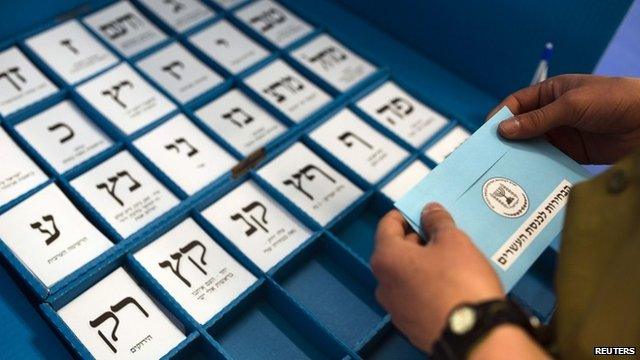
- Published16 March 2015
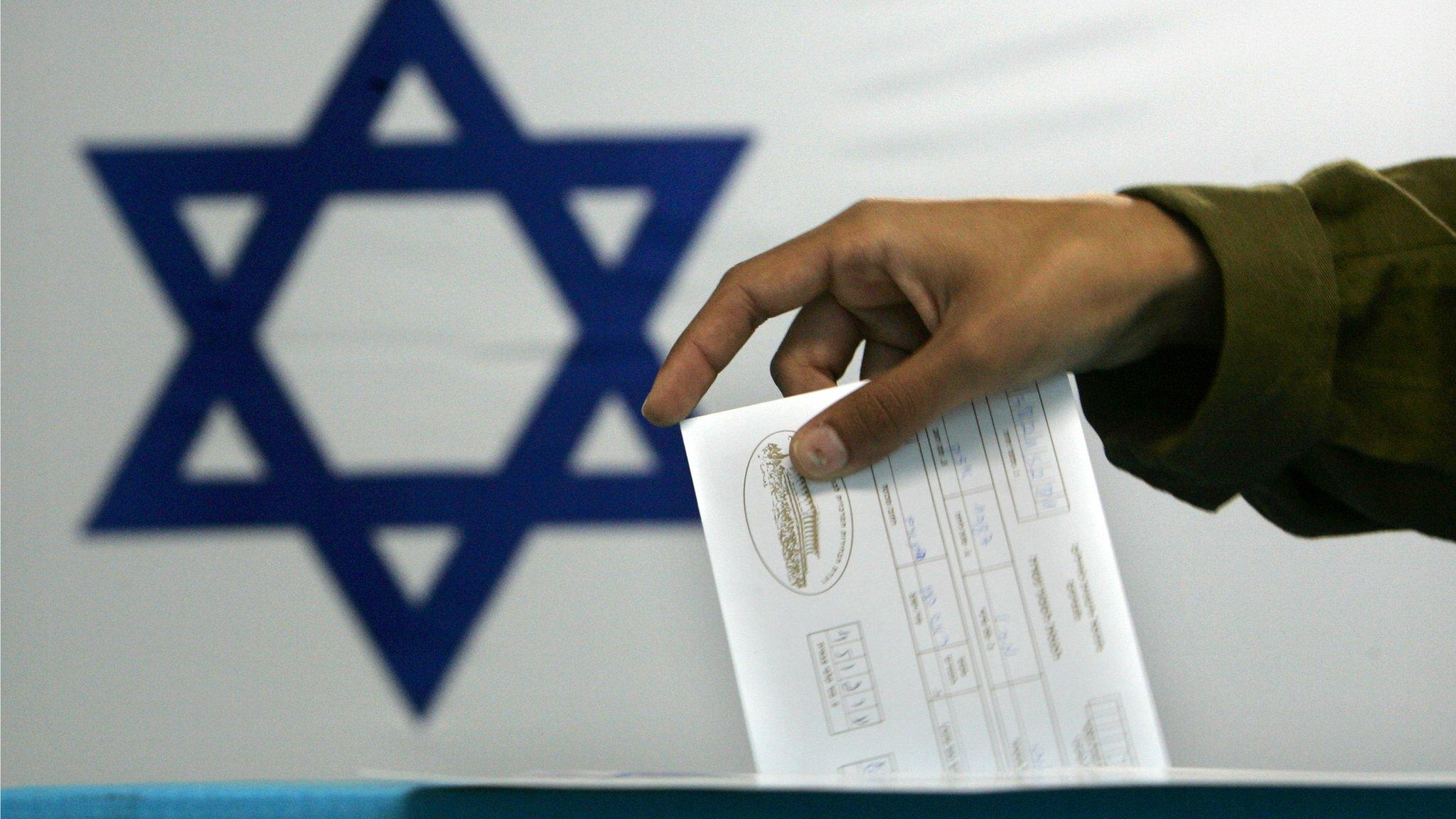
- Published14 March 2015
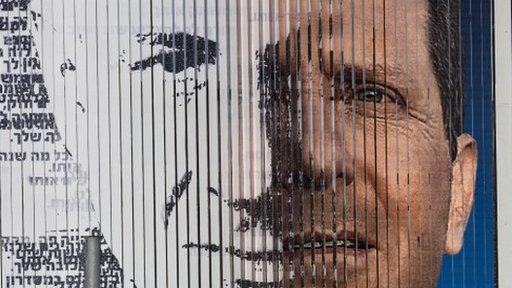
- Published13 March 2015
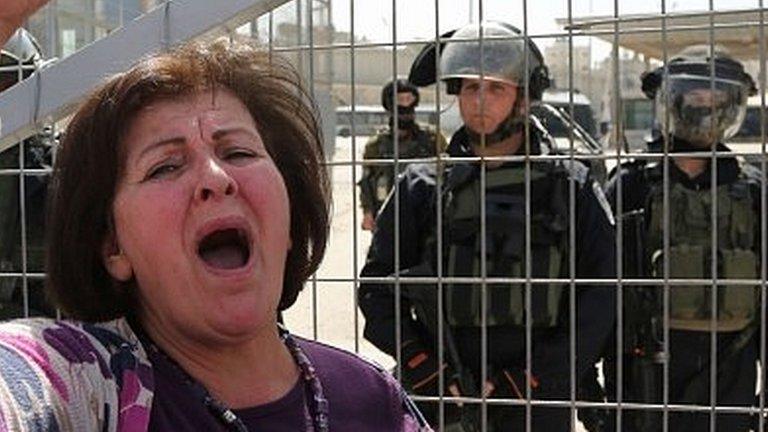
- Published12 March 2015
